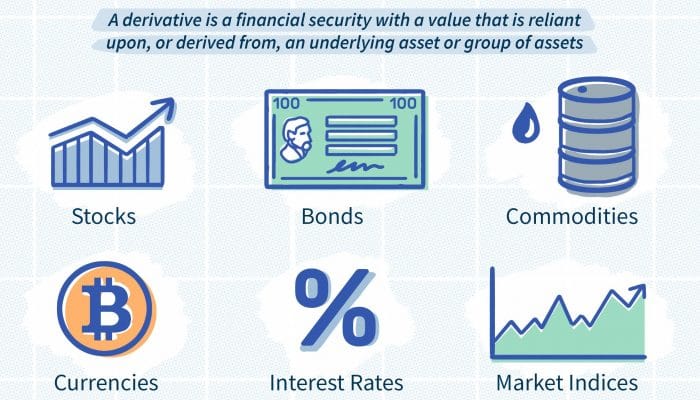Online counseling has become increasingly popular for its accessibility and convenience in providing mental health support. However, it also brings forth the important challenge of addressing cultural diversity and sensitivity in a virtual setting. It is crucial to foster cultural competency within online counseling education so that mental health professionals can effectively meet the diverse needs of their clients.
This article explores a comprehensive approach to enhancing cultural competency in online counseling education, which is comprised of inclusive curriculum design, cultural awareness workshops, virtual role-playing scenarios, global virtual internships, multicultural ethics education, language, communication training, and cultural self-reflection assignments.
Inclusive curriculum design
Creating an inclusive curriculum design is essential for promoting cultural competency. A well-crafted curriculum should incorporate diverse perspectives, case studies, and therapeutic techniques that can resonate with individuals from various cultural backgrounds. By including content that highlights cultural nuances, historical contexts, and societal factors, online mental health counseling master’s programs at the American International College can foster awareness and empathy among future counselors.
This approach not only equips students with the necessary knowledge to address culturally unique challenges but also helps challenge biases and assumptions that could impede effective counseling. By doing an MA in Clinical Mental Health Counseling (CMHC), students will learn skills and expand their knowledge for a new and meaningful career.
Cultural awareness workshops
Including immersive cultural awareness workshops alongside traditional learning methods can greatly enhance counseling students’ understanding of different cultures. These workshops create a safe environment for open dialogue, discussions, and sharing personal experiences related to cultural sensitivity.
Through engaging activities, role-playing exercises, and exposure to diverse perspectives, students gain practical insights into the challenges faced by individuals from various cultural backgrounds. Such workshops also help develop crucial interpersonal skills required for effective cross-cultural communication in online counseling settings. By integrating these workshops, students develop a deeper appreciation for diversity and gain the confidence needed to navigate cultural complexities with sensitivity.
Virtual role-playing scenarios
Online counseling poses a distinct challenge due to the lack of in-person interactions. To address this, incorporating virtual role-playing scenarios into the curriculum becomes incredibly valuable in bridging this gap. These scenarios simulate real-life counseling situations, allowing students to navigate cross-cultural dynamics and apply culturally appropriate therapeutic techniques.
By participating in these scenarios, students can develop their ability to adapt communication styles, customize interventions, and demonstrate cultural sensitivity — all critical skills when conducting online counseling sessions with clients from diverse backgrounds. This experiential learning approach sharpens practical abilities and cultivates the necessary empathy for authentic connections with clients.
Global virtual internships
There are innovative ways to foster a global perspective in online counseling education. One such avenue is through global virtual internships, where students can collaborate with counseling services or organizations worldwide. By working with clients from different cultural contexts, students gain practical experience and witness the interplay between culture and mental health firsthand. This exposure expands their understanding beyond textbook knowledge, and encourages collaborative learning by engaging with peers and professionals from diverse backgrounds. It provides a platform for sharing insights and best practices that transcend cultural boundaries.
Multicultural ethics education
Cultural competence in counseling is closely tied to ethical considerations. Including multicultural ethics education in the curriculum ensures that students are familiar with ethical guidelines and how they apply in diverse cultural contexts. Through the examination of case studies that explore ethical dilemmas influenced by cultural factors, students learn to navigate complex situations while upholding principles such as respect, dignity, and integrity. This kind of education empowers future counselors to make well-informed decisions that honor their clients’ cultural identities and professional responsibilities.
Language and communication training
Successful counseling, especially in online settings, relies heavily on effective communication. Language barriers can hinder the therapy process and lead to misunderstandings. To address this issue, it is essential for students to receive training that encompasses both language skills and nonverbal communication cues.
This comprehensive approach involves teaching techniques such as active listening and adapting communication styles to accommodate diverse cultural norms. By honing their communication abilities, counselors can establish rapport and trust with clients, regardless of linguistic or cultural differences. This ultimately enhances the overall online counseling experience for both parties involved.
Cultural self-reflection assignments
Cultural competence starts by being aware of oneself. Assigning reflective exercises that encourage students to explore their cultural biases, values, and assumptions can help them gain a deeper understanding of their own perspectives. Through these assignments, students can critically examine how their backgrounds influence the way they approach counseling and interact with others. This self-awareness sets the groundwork for humility, empathy, and an open-minded mindset, all of which are crucial for effective online cross-cultural counseling.
Cultural sensitivity webinars
In the world of online education, cultural sensitivity webinars have become a valuable tool for promoting knowledge and fostering cultural competence. These webinars bring together experts, practitioners, and thought leaders from diverse cultural backgrounds to share their insights and experiences. Students who attend these sessions gain exposure to a wide range of perspectives and counseling approaches within different contexts.
The interactive nature of webinars encourages participants to ask questions, seek clarification, and engage in cross-cultural dialogues, resulting in a deeper theoretical understanding and a bridge between theory and real-world practice. Additionally, these webinars can be recorded and archived, allowing students to revisit the discussions at their convenience and continue their learning journey at their own pace.
Experiential immersion retreats
Experiential immersion retreats offer students a unique opportunity to fully engage with different cultures. These transformative experiences take place in various locations, allowing students to witness firsthand the intersection of culture, mental health, and overall wellbeing. Through structured activities, meaningful interactions with local communities, and observation of cultural practices, students gain a deeper appreciation of how culture shapes individual experiences and challenges.
Additionally, these immersion retreats encourage personal growth by pushing students outside their comfort zones and challenging their biases and preconceived notions. The direct engagement with cultural diversity leads to introspection and helps students recognize areas for personal development. After returning to their virtual classrooms, students bring back an enhanced sense of cultural awareness and a broader perspective on the complexities of providing online counseling across different cultures.
Conclusion
The shift towards online counseling requires a new approach to cultural competency education. By incorporating inclusive curriculum design, workshops, role-playing scenarios, internships, ethics education, communication training, and reflective assignments, online mental health counseling master’s programs can effectively prepare aspiring counselors to navigate diverse cultural landscapes. This comprehensive approach ensures that counseling services are effective and ethical while cultivating a generation of mental health professionals who appreciate and embrace the diversity of their clients.




